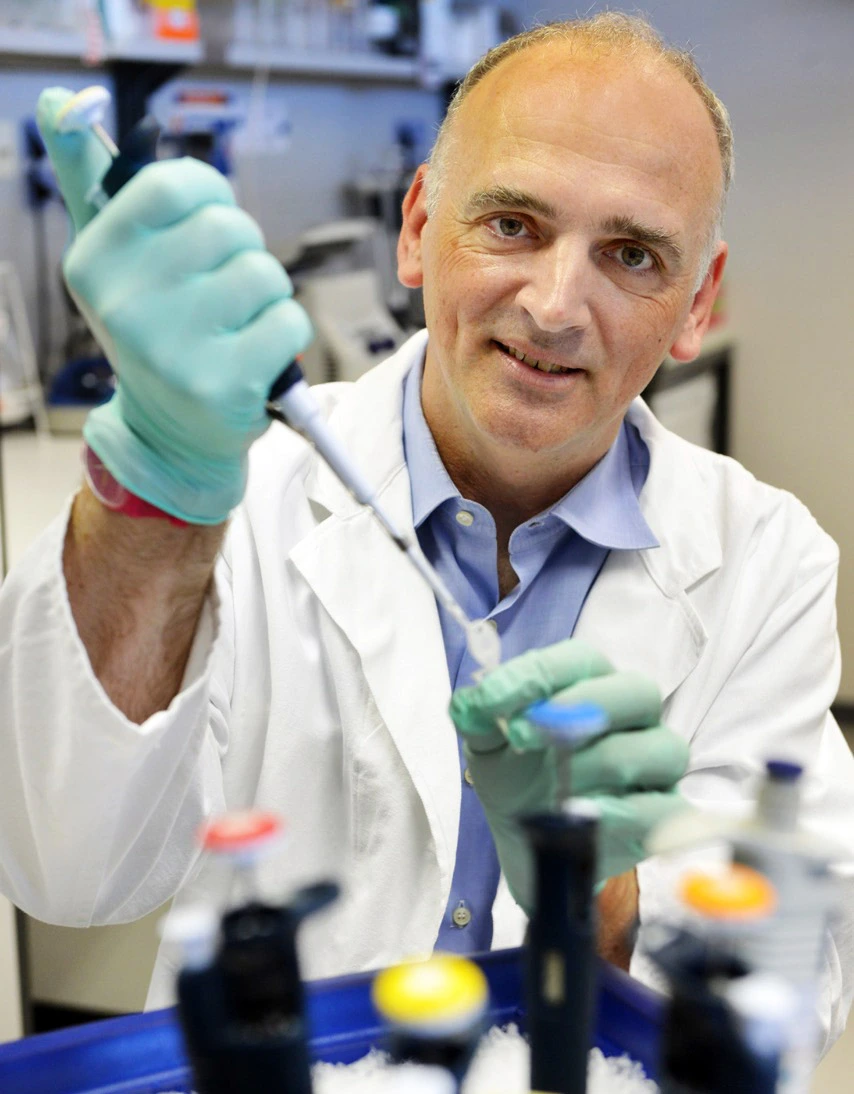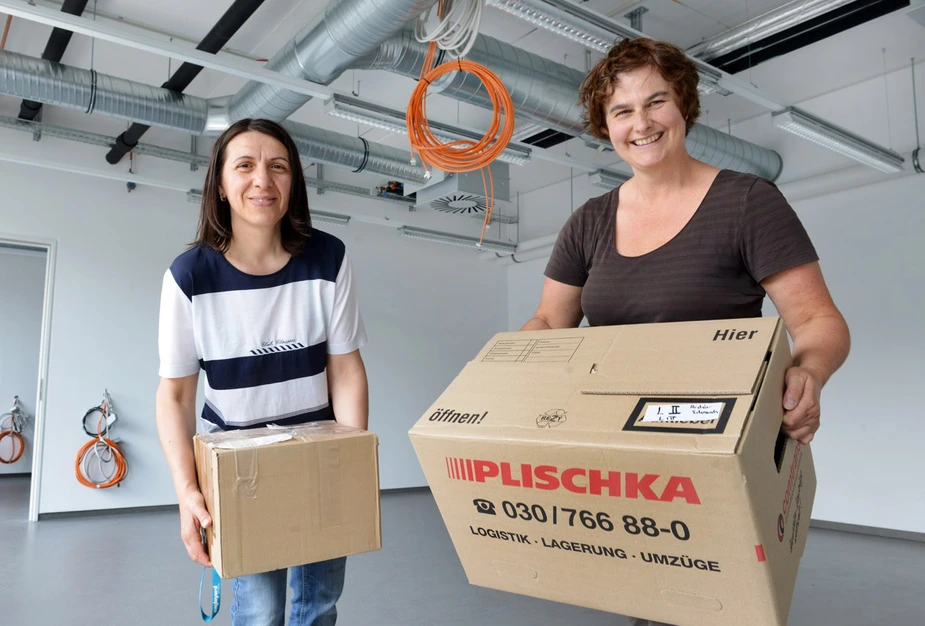From Dahlem to Adlershof
Two new companies in Adlershof, Alacris Theranostics GmbH and Clinical Laserthermia Systems GmbH, are committed to fighting cancer
He will miss the view of Dahlem’s Botanical Garden, says Bodo Lange. Apart from that, the manager of the company Alacris Theranostics sees moving from Dahlem to Adlershof as very positive. WISTA-MANAGEMENT GMBH’s building manager Jörg Israel is beckoning with perfectly equipped laboratories at Adlershof’s own ZMM, the Centre for Microsystems and Materials. Israel is also responsible for the new start-up centre FUBIC, short for Business and Innovation Center next to Freie Universität Berlin Campus, which will be completed in four years’ time. The companies that were originally based at ZMM now need a new place to stay.
Lange, who has PhD in biology, is looking forward to the great networking opportunities in Adlershof and to the proximity of the Humboldt-Universität’s institutes as well as a a range of other non-university research institutes. Founded in 2011, his company Alacris his active in personalised medicine, which is a field that is very much focused on application, but also very research-intensive. The company’s analyses and calculations are being funnelled into a model aimed at optimising cancer therapy. “Right now, only every third cancer patient responds to medical treatment,” says Lange.
ModCellTM wants to change these unsatisfactory results. A computer simulates healthy cells as well as tumour cells as well as, for example, kidney or brain tumour cells: what is the difference between the healthy and the sick cell? What is blocked or activated in the tumour cell? A conclusive simulation requires real data. As much as every patient has unique characteristics, so does every tumour. Finding out what these are requires meticulous biopsies to identify the genetic material of patients and tumour cells. This process of sequencing and data analysis is what the 20 employees of Alacris focus on. Using state-of-the-art computer technology, the company’s health informaticians, mathematicians, physicists and biologists test the effectiveness of over 300 types of cancer medication and filter out successful therapies. The results are shared with the attending physicians and clinics.
Pharmaceutical researchers also benefit from the expertise at Alacris. The broad patient data can be reused in other virtual clinical studies. They are also used to check agents for their applicability in cancer medication and to find out why a clinical experiment has failed. The Berlin-based company has a range of research projects underway together with clinics and institutes to further develop and validate its model, which are partially funded by the EU’s research programme “Horizon 2020“.
This programme also benefits the Swedish company Clinical Laserthermia Systems (CLS) AB, which develops laser therapy for malignant tumours. Its German subsidiary, CLS GmbH, was founded in March 2017. Lars-Erik Eriksson is the CEO. “We are developing optical fibres, which we insert into the tumour tissue, where they create heat using lasers,” says Verene Knappe, who oversaw building up the Berlin-based branch together with Manuela Schwagmeier. The two engineers were also in charge of the recent move of CLS GmbH to the Centre for Photovoltaics and Renewable Energies (ZPV) in Adlershof.
“In the US, some patients have already been treated with the minimally invasive CLS method,” says Knappe. Multicentre research trials are currently underway in Germany. They involve heating the outer tissue of the tumour using magnetic resonance imaging, killing off most of the cancer cells and releasing antigens. This activates the patient’s immune system thereby disabling freely circulating tumour cells and preventing metastasis. The method can be applied to solid tumours, as in, for example, breast, prostate and kidney cell cancer as well as metastatic cancer.
By Paul Janositz for Adlershof Journal

